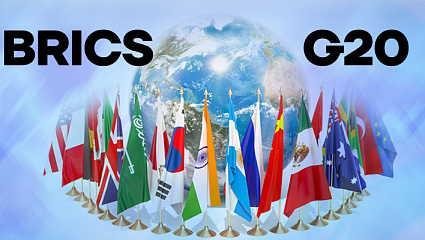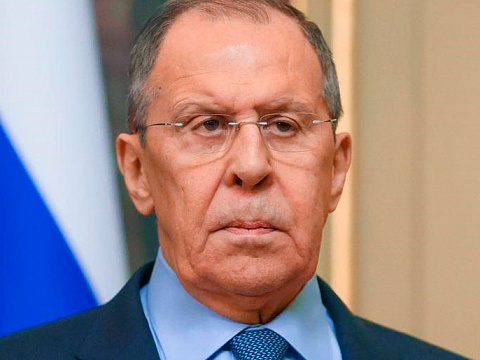Spotlight: Global tourism struggles to recover amid easing COVID-19 restrictions
As countries around the world are cautiously reopening to revive their hard-hit economies in the COVID-19 pandemic, global tourism has seen a glimmer of hope, but still faces an uphill struggle.
Tintagel Castle, a medieval fortification located in Cornwall in southwest England, is considered one of the most spectacular sites in Britain.
Annually, over 250,000 tourists visit the place and pass through routes and ruins from around the 5th-7th century AD.
However, this year, COVID-19 has taken its toll on the famed tourist attraction as the number of visitors to the site plunged.
When the nationwide lockdown was announced in March, Georgia Butters and her staff at Tintagel Castle were getting ready for the busy Easter period.
But after all the preparation for one of the busiest periods of the year, the site was forced to close as the lockdown restricted travel and domestic tourism dropped instantly.
On July 4, the British government announced the phase-by-phase reopening of outdoor venues, bringing hope to Butters, English Heritage's head of historic properties in Cornwall.
To achieve the goal of keeping staff and visitors safe, the entire site reopened but with a new visiting system that features social distancing, including a one way visiting route, limited access to the cafe, as well as timed ticketing for everybody.
These measures have obviously restricted the number of visitors and affected their travel experiences.
"At the moment we're looking at a third of our peak capacity, which is a significant difference," said Butters.
The reduced number of visitors means that the surrounding area will likely take a hit, as for much of the immediate local communities, Tintagel is somewhere that provides a living for them.
In other parts of the world, similar efforts are also underway to salvage the staggering tourism industry.
In Italy, a government policy intended to revive tourism took effect in July.
According to a promotional program effective until the end of this year, low-and medium-income households, couples, and individuals who spend holidays at Italian tourist facilities can benefit from a financial bonus of up to 500 euros (560 U.S. dollars).
In Finland, a large-scale open-air market and dining area located on Helsinki's iconic 3,000-square-meter Senate Square opened to the public on July 1, in a move to encourage the catering and tourism industries.
Due to the COVID-19 pandemic, the number of overnight stays by foreign tourists in Finland dropped by nearly 93 percent in June 2020, Statistics Finland said in a press release issued on Thursday.
Between January and June this year, a total of 6.08 million nights were spent by tourists in Finnish accommodation facilities, 42.6 percent less than the same period in 2019. The number of nights spent by foreign tourists dropped by 48.9 percent from the previous year, according to the data.
A larger picture across the globe is even grimmer.
On July 28, the United Nations World Tourism Organization (UNWTO) highlighted the enormous cost which the coronavirus pandemic brings to the global tourism sector, both in tourist numbers and revenues.
The latest edition of the UNWTO World Tourism Barometer shows that lockdown restrictions imposed to respond to the epidemic led to a 98 percent fall in international tourist numbers in May this year, compared to May 2019.
The Barometer also shows a 56 percent year-on-year reduction in tourist arrivals in the first five months of this year, with a loss of 320 billion U.S. dollars in international tourism receipts, which the UNWTO said is "more than three times the loss during the Global Economic Crisis of 2009."
The dramatic fall in global tourism has placed millions of livelihoods at risk.
UNWTO Secretary-General Zurab Pololikashvili said in a statement that the data showed "the importance of restarting tourism as soon as it is safe to do so," calling on governments in every world region "to prioritize public health while also protecting jobs and businesses."
While global tourism is slowly returning under easing restrictions, its prospect is still uncertain for a string of downside risks such as the resurgence of the virus, the possibility of new lockdowns and the safety concerns with travel.
Last week, the British government warned against non-essential travelling to Spain, saying "the advice is based on evidence of increases in cases of COVID-19 in several regions" in Spain, which gave a fatal blow to the country's tourism.
Even though the Spanish government insists the country is safe to travel to, health authorities have acknowledged that the country may be experiencing a second wave of cases.
The majority of the cases have been detected in bars and nightclubs, as well as seasonal fruit and vegetable pickers.
The premature opening of big but unsafe tourist markets for the sake of reviving tourism is out of the question, Cypriot Health Minister Constantinos Ioannou said in July.
Ioannou dismissed suggestions that tourists from high-risk countries could be screened by mass testing at airports.
"Just imagine what would happen even if only a few travelers tested positive, even five, each day. Quarantine facilities and hospitals would be filled in no time at all," Ioannou said.
Without properly handling these coronavirus-related concerns, it could be hard for global tourism to get back on track, which, in turn, will severely hamper the recovery of the world economy.
According to a report published on June 15 by the World Travel & Tourism Council, tourism and travel industries created 330 million jobs in 2019 and accounted for 10.3 percent of the global economy.
To accelerate the recovery of tourism, the council suggested in the report "the adoption of global health and safety protocols, the implementation of a rapid test and trace strategy to help contain the spread of the virus, as well as the greater collaboration between the public and private sectors to ensure a standardized global approach to the crisis."
TV BRICS reports with reference to Xinhua News Agency.
Photo: pixabay.com







 DIGITAL WORLD
DIGITAL WORLD




































